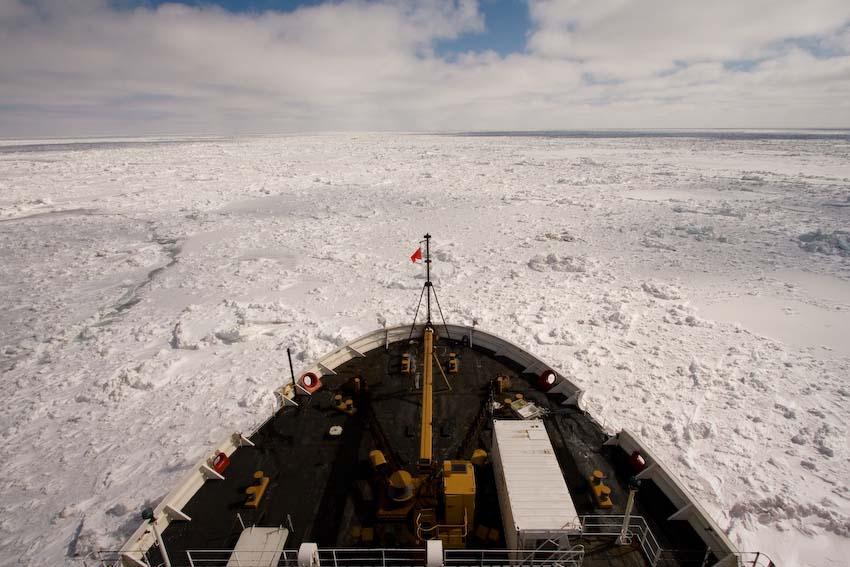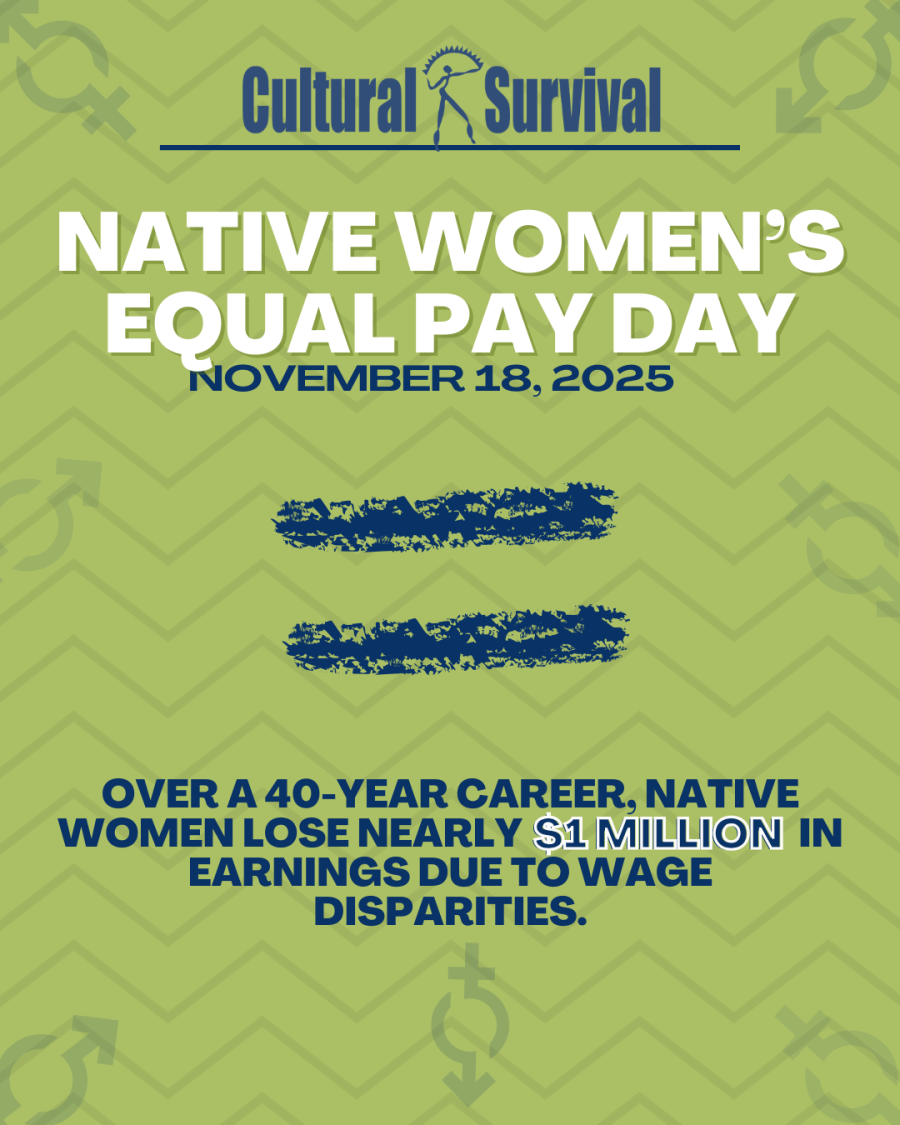
By Haley Albano
The North Pacific Fishery Management Council met from December 3-10, 2018 in Anchorage, Alaska, and voted to adopt a new Bering Sea Fishery Ecosystem Plan that will officially incorporate Indigenous traditional ecological knowledge and systems of marine administration into fishery organizational strategies. The incorporation of traditional knowledge leads to more effective marine policy and more equitable outcomes. Julie and Brenden Raymond-Yakoubian are social scientists who have worked on incorporating Indigenous knowledge into fishery management projects. In an interview with the PEW Charitable Trusts, Julie Raymond-Yakoubian says that Indigenous communities “can see components of the ecosystem, including interconnections and relationships, that fishery managers might miss.”
Fisheries have traditionally been managed according to species-specific regulations, and are economic lifelines for the coastal communities who rely upon them. In many regions, the economic impact of relying upon a single species to local aquaculture can represent a significant portion of the region’s economic interests. The overall economic investment in the success of one species means that it is critical to mitigate any negative impacts resulting from not understanding an ecosystem as a whole. The shift from species-specific planning to entire-system interaction recognizes that the overall interconnections of fisheries, as dynamic spaces, requires a highly localized knowledge to mitigate negative outcomes. Using traditional knowledge to improve the outcomes of fisheries shifts the focus of management towards a view of fisheries as dynamic and localized spaces, and mitigates the effects of knowledge that is not tailored specifically to these systems.
The incorporation of Indigenous knowledge into fishery management in the Bering Strait recognizes the value of traditional Indigenous science to the overall sustainability efforts of local Indigenous communities. In the Bering Strait, Indigenous populations have lived closely with the coast lines, and have developed the highly localized systems-specific knowledge that is required for the maintenance of regional ecosystems. Indigenous populations have maintained waterways and ocean systems for generations, and have developed sets of information about the inner workings of these systems, information that is ultimately vital to the interests of federal fishery management. The information about the interconnections of these systems represents a gap in contemporary fishery management that can be addressed through communicating with Indigenous populations and including them in these strategic decision-making processes.
The North Pacific Fishery Management Council is the primary body responsible for developing policies related to Alaskan federal fisheries. The management of fisheries in federal Alaskan waters involves a number of stakeholders and interactions with government agencies. NPFMC is one of 8 councils created by fishery conservation and management acts, and is overseen by the National Marine Fisheries Service and NOAA. The councils develop plans, which are then federally adopted by National Marine Fisheries Service who enforce these regulations in Alaskan waters. Indigenous populations in Alaskan have expressed concern over lack of integration in coastal policies, especially given the high level of involvement taken by commercial fishing systems in Alaskan fishing policy.
Ensuring that Indigenous knowledge is represented in fishing policy impacts the outcomes of dynamic marine ecosystems, and also has the potential to mitigate issues such as net by-catch. Waste produced from by-catch and poor localized knowledge of marine spaces is in conflict with beliefs about not wasting food for local people. The reduction in marine waste is a cultural value that implementing improved systems of ecological management can reflect in these coastal spaces. Among one of the greatest challenges is for policy makers and scientists to reflect the importance of traditional knowledge and seek it out in their work. Ensuring that local tribes have the adequate resources to attend yearly council meetings is also important, as this is a primary space to advocate for traditional knowledge.
Incorporating traditional ecological knowledge also can critically mitigate regional conflict between fishing stakeholders and encourage transparency. Because of the importance of the success of fishery systems to the region, multiple parties rely upon the success of these systems. The discourse of the effects of commercial fishing management on subsistence fishers will be more accessible to the fishing industry, and will also open lines of communication between multiple types of fishing industries sharing the same waters. Because interactions impact ecosystems, human-environment interactions are important to recognize in understanding fishery management strategies. These interactions are a part of traditional Indigenous knowledge and systems of administration, and Indigenous science can fluently articulate these interactions. These observations are critical to fishery management strategies. The shift from a single-species level of management to a systems-level style of management in the region also helps scientists to use the most complete data available.
The impacts of climate change on aquaculture are also critical in the Bering region to consider when shifting styles of marine management and policy. Co-managing natural resources is more important now than it ever has been, and will continue to play a vital role in the success of fishing-based industries. Traditional knowledge, systems of administration, and Indigenous science can also help in the critical adaptation to rapidly increasing climate change and have perspectives that allow for observing systemic shifts in ways that will both complement and improve current systems of marine management. Traditional knowledge is a living set of knowledge that is acquired and transmitted to the next generation, and includes observations of systems as wholes. Because climate change in marine systems is rapidly ongoing, knowledge at the systems-level will become increasingly more important in order to understand the interactions between various components and outcomes. With the severe effects of climate change on marine environments come an increased need to be able to adapt to uncertainties. Uncertainty in ecosystem management can be devastating, particularly when a region relies so heavily upon an industry. Ecosystem management styles that are positioned to most fluidly understand large scale systemic changes will positively impact the outcomes of climate change and mitigate the effects it has upon an industry that is so regionally critical.
The use of traditional knowledge in local fisheries proximate to Native Alaskan communities that rely upon subsistence practices increases the equity of the fishing industry and the positive outcomes of the processes used in these industries. Subsistence activities are culturally critical to these Indigenous communities, and increases equity and representation in federal waters. Ecosystem-based fisheries management is not only beneficial to the continued health and maintenance of critical ecosystems, but is a process by which fisheries can adapt management strategies to the realities of extreme climate shift in the region. Because traditional knowledge can more fluidly build upon observations of environmental changes, and relate information to entire systems, it is more effective for regions undergoing extreme shift. The necessary change from single-species systems to holistic systems also allows for fishery management techniques to more efficiently engage in problem solving. When there is an issue in a local process, seeking systemic answers from larger understandings of interconnections will identify the problems and assist in the creation of effective solutions. Instead of concentrating on singular avenues, holistic marine processes view systems and interconnections as information bettering the fishery industry as a whole.
As dynamic and community spaces, fisheries represent the interests of communities. Because communities rely upon the economic processes and tangible results of fishing, each community member is a stakeholder in the outcomes of fishing administration. Incorporating traditional knowledge allows for commercial fishing to more effectively used shared waters, and to increase their sense of sustainable responsibility in ensuring that waste and by-catch are reduced. Incorporating living traditional knowledge practices into marine industries respects the voices of Indigenous communities, improves the outcomes of community fisheries, and allows organizational strategy to more fully adapt to the realities of climate change. Brendan Raymond-Yakoubian says of the challenges “One is getting recognition for Traditional Knowledge and ensuring there is a desire for it to inform policy and science. Another is getting natural scientists—those working in fisheries or oceanography, for example—to work with social scientists and Traditional Knowledge holders.”
Photo by jomilo75.

